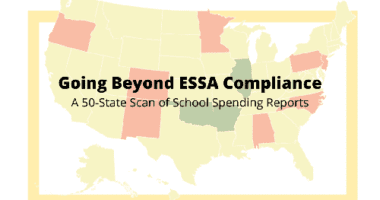Dumb Policy Ideas Not Limited to the Far Right
The joint proposal for ESEA reauthorization from the Center for American Progress and the American Federation of Teachers shows that bad policy ideas aren’t limited to the far right. If adopted, these policies would return us to a time when how much students learned hardly mattered (that is, to anybody but them).
The proposal would reduce the focus on student learning in state accountability systems, encouraging the layering on of other “quality” measures that could easily have the effect of explaining away poor student outcomes. Further, by focusing accountability on a single grade level in a school, the proposal would encourage teachers to flee that grade level and reduce the focus on moving achievement for all children. And ironically, in states that factor student learning growth into teacher evaluation, many teachers would be held accountable for student learning, but their schools would not.
The education community has seen this story before: Instead of the rigorous, annual accountability for growth in academic achievement that we needed to improve their education, we asked whether low-income students, students of color, and students with disabilities felt good about themselves or whether they got some extra counseling. Let us not repeat that story. Those who care about making sure that these students are well-prepared for college, careers, and the responsibilities of citizenship should reject this proposal out of hand.










